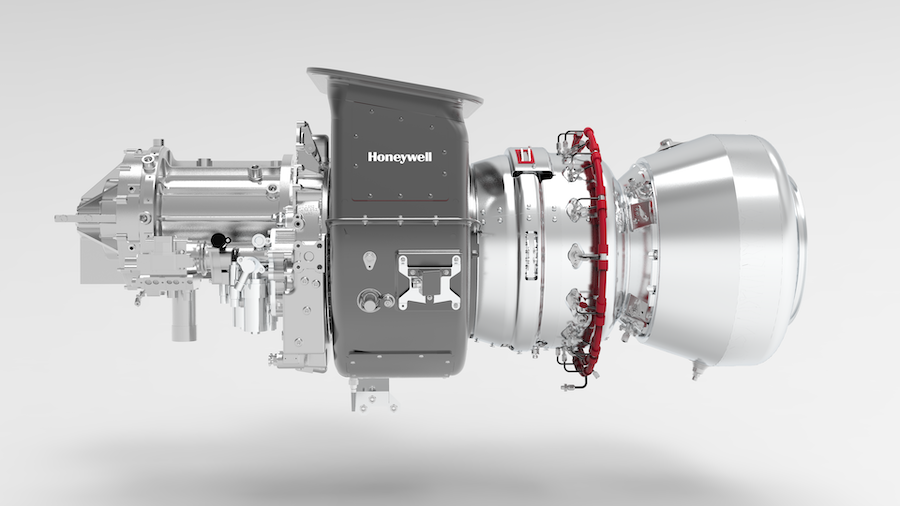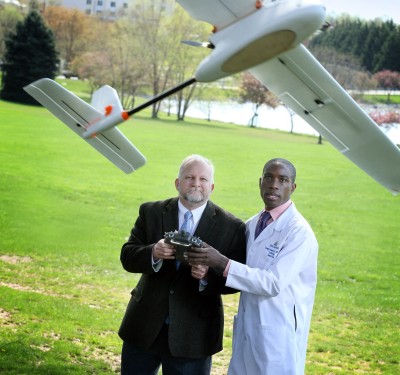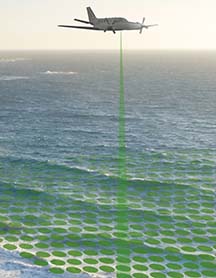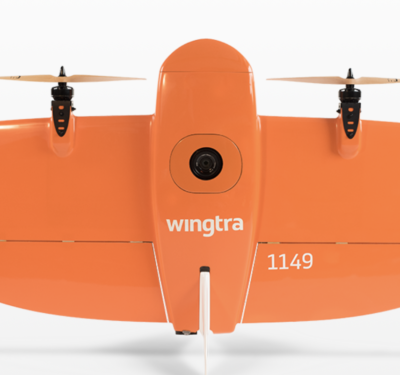 Honeywell is working to develop a turbogenerator that runs on biofuel to power hybrid-electric aircraft—including heavy-lift cargo drones and air taxis.
Honeywell is working to develop a turbogenerator that runs on biofuel to power hybrid-electric aircraft—including heavy-lift cargo drones and air taxis.
The Honeywell 1-Megawatt generator, at 280 pounds, weighs about the same as a motor scooter but can deliver enough energy to power an entire neighborhood block, according to a news release. It will be combined with the company’s HGT1700 auxiliary power unit to create a turbogenerator that’s 2.5 times more powerful than what the company released in 2019. The HGT1700 auxiliary power unit is flown on the Airbus A350 XWB.
This turbogenerator, which can be used to operate high-power electric motors or charge batteries, will run on aviation biofuel, including Honeywell Green Jet Fuel, as well as conventional jet fuel and diesel. The Green Jet Fuel is chemically similar to fossil fuel but made from more sustainable alternatives.
“There is an inherent need for electric and hybrid-electric power as the urban air mobility segment takes shape and unmanned aerial vehicles enter service,” said Stephane Fymat, vice president and general manager for Unmanned Aerial Systems and Urban Air Mobility at Honeywell Aerospace, according to the release. “Our turbogenerators provide a safe, lightweight package to serve these burgeoning segments, and we’re designing our solutions to meet the unique needs of customers developing aerial vehicles of the future.”
Aircraft traditionally use fuel-burning engines to mechanically turn rotors, propellers or fans. Newer designs use a distributed electric propulsion architecture, meaning many electric motors can be tilted or turned off for vertical takeoff and horizontal flight. This new turbogenerator can provide electric power for multiple electric motors anywhere on an aircraft.
Honeywell recently signed a memorandum of understanding with Faradair Aerospace to collaborate on systems and a turbogeneration unit that will run on sustainable aviation fuel to power the British startup’s Bio Electric Hybrid Aircraft (BEHA). The company plans to deliver 300 hybrid-electric BEHAs into service by 2030. Honeywell is also in advanced discussions with several other potential turbogenerator customers.
“Honeywell’s unrivaled legacy in the manufacturing of auxiliary power units and larger gas turbine engines gives us the ability to create unique power systems for future vehicles,” said Taylor Alberstadt, senior director of Power Systems Business Development at Honeywell Aerospace, according to the release. “We think the future of aviation will include many new types of propulsion and power systems, and Honeywell is prepared to lead the way in their development.”
The turbogenerator system’s first demonstration is expected to happen in the third quarter.






